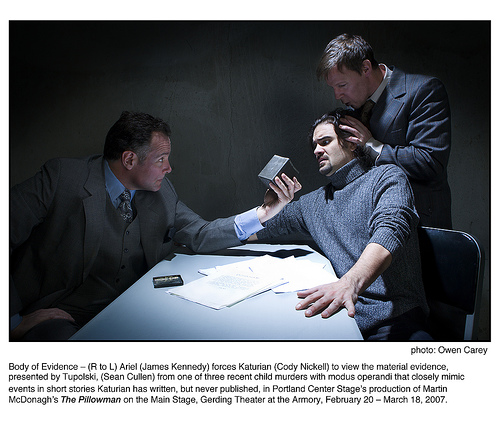Was it Voluntary? Police Interrogations and the Admissibility of Confessions

A confession is obviously a key piece of evidence that every assistant district attorney (prosecutor) wants in any criminal case especially those involving theft, acts of violence, drugs, guns and even DUI/DWI. The fact that a person confesses to a crime, however, doesn’t necessarily mean that that the statement was voluntary. Courts in Pennsylvania will assess voluntariness of a confession based on the following factors:
- The duration and means of the interrogation
- The physical and psychological state of the accused
- The conditions of the detention
- The attitude of the interrogator
- Any and all other factors that could “drain a person’s ability to withstand suggestion and/or coercion.”
A non-voluntary confession isn’t always one where a defendant or suspect suffers physical abuse but can include psychological coercion. Keep in mind that the fact that a person is in police custody, however, doesn’t mean that a confession is coerced or forced. The issue of voluntariness isn’t whether the person would have confessed without interrogation but whether the interrogation tactics were so manipulative or coercive that it deprived the person of his or her ability to make a free and unconstrained decision to confess.
The issue of the admissibility of a confession is addressed during pre-trial motions (aka motion in limine) to suppress the statement. At a Motion to Suppress the admissibility of a confession the prosecution has the burden to show that the statement was voluntary by a preponderance of the evidence. Remember that at a criminal trial, the burden is proof beyond a reasonable doubt (much higher). The “preponderance” standard asks the question is it more probable than not that something occurred rather than are you convinced beyond a reasonable doubt.
Once a court determines that a confession is voluntary, it will look toward the issue of a person’s Fifth Amendment right against self-incrimination, his Sixth Amendment right to counsel, and the issue of Miranda Rights (which address both of these amendments). This all obviously assumes that your criminal defense lawyer raises these issues. If a criminal defense attorney, however, is attacking the voluntariness of a statement, he should also consider whether a person knowingly and intelligently waived his right to remain silent and his right to counsel.
The issue to Miranda and a person’s right against self-incrimination is only a viable defense, however, if a court finds that a person was subject to a custodial police interrogation. If this is the case, prior to any statement, police must advise the individual in clear and unequivocal language that:
- He has the right to a lawyer and if he can’t afford a lawyer, one will be provided for him
- If he wants a lawyer, the police will not pursue interrogation until he has an opportunity to consult with one;
- That he has a right to remain silent and the interrogators will allow him to exercise that right;
- If he wants to talk, anything he that says can and will be used against him in court.
These warnings come directly from the case of Miranda v. Arizona. A landmark 1966 US Supreme Court case which dealt with the issue of the admissibility of confessions.
The mere fact that a person is the subject of an investigation doesn’t mean that Miranda warnings apply. The test for custodial interrogation isn’t based on the subjective intent of law enforcement (police) but whether the suspect is physically deprived of his freedom or he is in a situation where he reasonably believes that its freedom is restricted and he isn’t free to leave.
This is the main reason why I always advise a person to remain calm and ask police if they’re free to leave. Never answer any questions or never make a statement! Stop talking and ask for a lawyer! It’s also important never to consent to the search of your person or your property. This is the single most important advice that I can give to someone facing criminal charges in Pennsylvania, New Jersey or anywhere in the United States.
For more information on voluntary confessions and the admissibility of those statements read my blog, watch my videos, or visit my free download section of my website.
